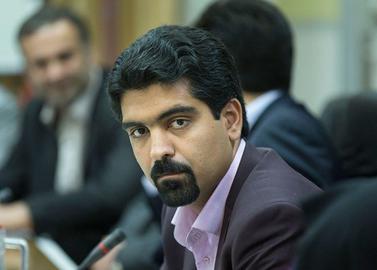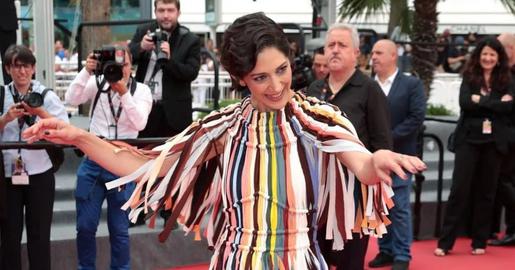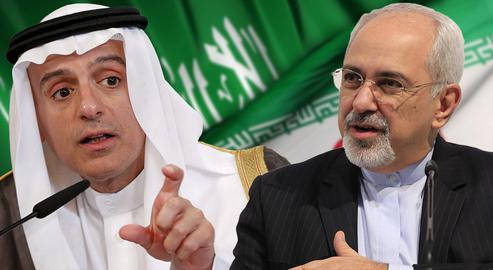Once again, a news story has underlined the disconnect between the Iranian government’s pious high-minded rhetoric and grim reality.
This time, it is the case of Sepanta Niknam, the Zoroastrian member of Yazd city council. Or, at least he should be.
In the recent municipal elections there, Niknam won a second term by 21,000 votes, but was prevented from taking his seat.
A defeated conservative candidate complained that Iran’s constitution did not permit someone from a religious minority to make decisions on behalf of the citizens of a majority-Muslim city. Iran’s administrative court agreed. It suspended Niknam, then kicked the case all the way up to Iran’s supreme judicial arbiter – the Guardian Council – which upheld the suspension.
The issue has polarized politicians. Some powerful figures, including Parliamentary Speaker Ali Larijani, have come out on Niknam’s side and called for the suspension to be rescinded.
Reza Rabbani, an MP from Yazd, which is located on the verge of Iran’s central desert, told the Iranian Students’ News Agency that the decision to suspect Niknam “paves the way for more manipulation of people's votes.”
If Zoroastrians can sit in the national institution of parliament,” he said, “they surely can take seats on city councils.”
But, as a politician who knows which side his bread is buttered on, he added, “Of course, the Guardian Council has that last word on how we should interpret the constitution.”
He is right. The Guardian Council has authority to interpret the constitution, and the key word here is “interpret.” Iran’s constitution is full of holes and contradictions, especially when it comes to the rights of minority religions.
On the one hand, it states that “All people of Iran, whatever the ethnic group or tribe to which they belong, enjoy equal rights.”
Note it does not say “whatever religious group they belong to.”
The constitution gives primacy to Islam. It does not guarantee equality for members of minority religions, even Christianity, Judaism and Zoroastrianism, which are officially recognized. Furthermore, it does not spell out the right of anyone from a minority religion to run for office or to occupy a political position.
There is no explicit protection for Niknam in his country’s constitution.
Back in 1980, just after the revolution, the late Ayatollah Khomeinei said members of official religions could sit on city councils in cities where those religions were dominant. But he was a canny man, and correctly foresaw that those religions would dwindle in an Islamic Republic, until they were would no longer dominant anywhere. (There are now only between 20,000 and 25,000 Zoroastrians left in Iran, and Jews continue to leave in a steady stream.) The ayatollah knew his meager concession to minority religions in politics wouldn’t last long.
It’s worth noting that the shah afforded much better protections. In the early 1960s, the late king introduced a constitutional amendment saying that non-Muslims sitting on municipal councils could even take their oaths of office on their own scriptures. That meant Zoroastrians could not only be elected but also swear on the Avesta. Similarly, Christians could swear on the Bible and Jews on the Torah.
Khomeini, like his fellow mullahs, did not believe in the equality of Muslims and non-Muslim Iranians (or for that matter, equality between men and women). Before the revolution, though, he avoided drawing attention to his chauvinism because many Iranians would have found it offensive. Instead, as a young firebrand clergyman, Ruhollah Khomeinei inflamed his anti-monarchist movement of seminary students and bazaari bourgeois by focusing on the dog-whistle issues of the day – imperialism and Israel.
In fact, Khomeinei was already planning for a radical Islamic state in which non-Muslims would be second-class citizens. That is what we now have, even though politicians — whether reformist or conservative — don’t like to admit it.
They showed their colors when they half-heartedly condemned the barring of Sepanta Niknam from Yazd city council on religious grounds.
Meanwhile, reformists continue to insist that “Iran is for All Iranians.”
It reminds me of an old Persian parable.
Once upon a time, a thief stole a rooster and stuffed it in a sack. As he was making his getaway, the rooster’s owner showed up and grabbed him.
“What rooster?” whined the thief, clutching the threadbare sack. “Let me go. I’m just a poor passer-by. I never even saw a rooster, I swear to God...”
But as he was speaking, a bunch of black and green tail feathers suddenly poked through a hole in the bag. The shameful truth — revealed.
For Iran, Niknam’s case is another shameful truth.
As a footnote, I’d like to point out that religion is not the only criterion used to bar politicians from elected office in our Iran-for-all-Iranians pseudo-democracy. Last February, Minou Khaleghi ran as the MP for Isfahan – and won. No sooner did she declare victory than she was disqualified by the Guardian Council. The reason? A journalist with the Fars news agency wrote that Khaleghi had shaken hands with a man and did not observe the Islamic dress code while traveling abroad.
visit the accountability section
In this section of Iran Wire, you can contact the officials and launch your campaign for various problems




















comments
The so called reformists have their vested interests not to reveal shameful truth
The so called reformists do not dare to reveal the truth , as the writer said they know which side of their bread is buttered ,